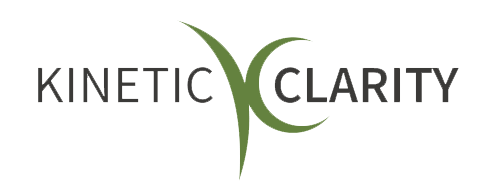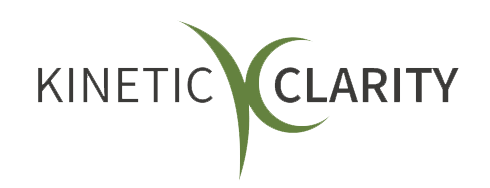Boosting Self-Awareness in the Workplace: A Guide
Self-Awareness is Essential

Self-awareness is the ability to recognize and understand your thoughts, feelings, and behaviors and how they impact those around you. Self-awareness is an essential skill that can help us navigate life with greater ease and success. In addition, self-awareness can help us communicate better, make better decisions, and build stronger relationships with our colleagues.
Not everybody is born with the innate ability to be reflective. 95% of people identify themselves as “self-aware,” but only 10-15% truly are. However, the good news is that it is something that most people can develop with some practice.
The Benefits of Self-Awareness
A Harvard study found that people who are self-aware make better leaders. So, if you’re looking to strengthen your leadership skills, working on your self-reflection is an excellent start. It can boost and sharpen several of your other skill sets.
Before we dive into how to improve self-awareness, let's first explore why it's essential in the workplace. Here are some of the benefits of self-awareness.
Improved Communication
When we are self-aware, we have a better understanding of our thoughts, feelings, and motivations. We can better recognize how others may perceive our words and actions. This understanding allows us to communicate more clearly and effectively with others. As a result, we are more adept at expressing ourselves and listening to others.
Better Decision-Making
Self-awareness helps us recognize our own biases, blind spots, and personal limitations. We can make more informed decisions and avoid impulsive or irrational choices. We can also identify our strengths and weaknesses and make decisions that play to our strengths.
Increased Empathy
By understanding our own emotions, we may be better able to empathize with the emotions of others. Self-awareness can help us understand the perspectives and feelings of others. For example, we can recognize when someone is upset or uncomfortable and respond with compassion and understanding. This empathy can help us build stronger relationships with colleagues and create a more supportive workplace environment.
Greater Self-Control
Self-awareness can help us regulate our emotions, reactions, and behaviors, leading to greater self-control and better impulse control. For example, we can recognize when we're feeling angry or frustrated and take steps to calm ourselves down. We can also identify situations that trigger negative emotions and develop strategies to avoid or cope with them.
Improved Relationships
When we’re self-aware, we are better able to understand and navigate interpersonal dynamics, which can lead to better relationships with coworkers and managers.
Self-awareness can help us build stronger, more authentic relationships with our colleagues. When we understand our own strengths and weaknesses, we can be more open and honest with others. We can also recognize the strengths and weaknesses of others and appreciate them for who they are.
How to Improve Self-Awareness
Perhaps you recognize that self-awareness isn’t your strong suit, or maybe you simply feel you could be better at it. It’s possible to cultivate better introspection in yourself, but it takes practice and effort.
Now that we've explored why self-awareness is essential in the workplace let's discuss how to improve it. Here are some strategies.
Practice Mindfulness
Mindfulness is the practice of being present and non-judgmental in the moment, with curiosity and openness. Mindfulness can help us become more aware of our thoughts, feelings, and bodily sensations. You can practice mindfulness by taking a few minutes each day to focus on your breath, body, or surroundings.
Seek Feedback
Feedback from others can help us identify blind spots and areas for improvement. Ask coworkers or managers for feedback on your performance, communication style, and behaviors. You can also seek input from a mentor or coach. Be open to constructive criticism and use it to improve.
Journaling
Journaling is a powerful tool for self-reflection. Writing down your thoughts and feelings can help you identify patterns and gain insights into your own behavior. When you better understand yourself, you can work on changing behaviors that hold you back. Try journaling for a few minutes each day, focusing on your emotions or experiences at work.
Take Personality Assessments
Personality assessments, such as the Myers-Briggs Type Indicator or the Big Five personality traits, can help you better understand your strengths, weaknesses, and tendencies. You can take a personality assessment like the Myers-Briggs Type Indicator or the Big Five personality traits to gain insights into your personality.
Attend Workshops or Training Sessions
Workshops or training sessions on self-awareness can help you develop skills and techniques for improving your self-awareness. You can look for workshops or training sessions offered by your employer or attend external workshops or training sessions on self-awareness, emotional intelligence, and mindfulness. Better yet, Kinetic Clarity can provide personalized coaching, either individually or for your team.
Overcoming Barriers to Self-Awareness
While developing self-awareness can have numerous benefits, there may be barriers to doing so. Sometimes we can be our own worst enemy. Nevertheless, learning to recognize how we hold ourselves back can be immensely helpful.
Here are some common barriers and strategies for overcoming them.
Fear of Feedback
Feedback can be difficult to hear, especially if it's negative. It can be scary to ask for input or hear constructive criticism. However, recognizing that feedback is an opportunity for growth can help you overcome this fear. It can also be a valuable tool for development. Try to approach feedback with an open mind and a willingness to learn.
Lack of Time
Finding time for self-reflection and self-improvement in a busy work environment can be challenging. Developing self-awareness can take time and effort, but it's an investment in your personal and professional development. Even a few minutes each day can make a difference.
Prioritize self-awareness activities by setting aside time each day or week. Try to set aside a few minutes each day for mindfulness, journaling, or reflection.
Resistance to Change
Changing behaviors or thought patterns can be difficult. Perhaps that’s why people say you can’t teach a dog new tricks. But that isn’t entirely accurate. It is possible to make pervasive personal change, but it takes practice and patience. So start small and gradually build up to more significant changes.
Perfectionism
Perfectionism can be a barrier to self-awareness, as it can lead to a focus on external validation rather than internal reflection. Recognize that self-awareness is a process and that making mistakes is a natural part of it.
Tips for Building a Culture of Self-Awareness
In addition to developing your own self-awareness skills, you can also help build a culture of self-awareness in your team. This will only benefit the entire organization, after all.
To promote self-awareness in the workplace, here are some tips.
Lead by Example
As a leader, you can model self-awareness by being open and honest about your own strengths and weaknesses. Share your own experiences with self-reflection and growth, and encourage others to do the same.
Encourage Open and Honest Communication
Create a workplace culture that values open and honest communication. Encourage colleagues to speak up about their thoughts and feelings and provide a safe space for them to do so.
Provide Opportunities for Self-Reflection and Feedback
Offer opportunities for colleagues to reflect on their work and behavior. This can include workshops, coaching sessions, or self-assessment tools. Encourage colleagues to seek feedback from others and provide constructive feedback to each other.
Incorporate Self-Awareness into Performance Evaluations
Include self-awareness as a competency in performance evaluations. Ask colleagues to reflect on their own self-awareness and provide feedback on how they can improve.
Wrapping Up
Self-awareness is a crucial skill that can help us thrive in the workplace. It can improve communication, decision-making, empathy, self-control, and relationships. We can improve our self-awareness by practicing mindfulness, seeking feedback, journaling, taking personality assessments, and attending workshops.
We can also build a culture of self-awareness in the workplace by leading by example, encouraging open and honest communication, providing opportunities for self-reflection and feedback, and incorporating self-awareness into performance evaluations. So let's commit to practicing and promoting self-awareness in the workplace and watch our workplace relationships and success flourish.












